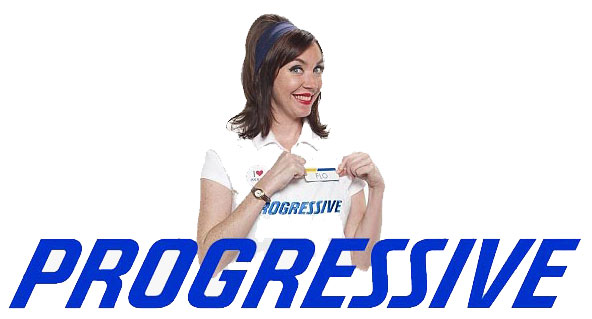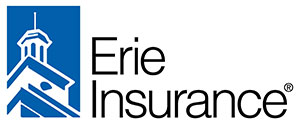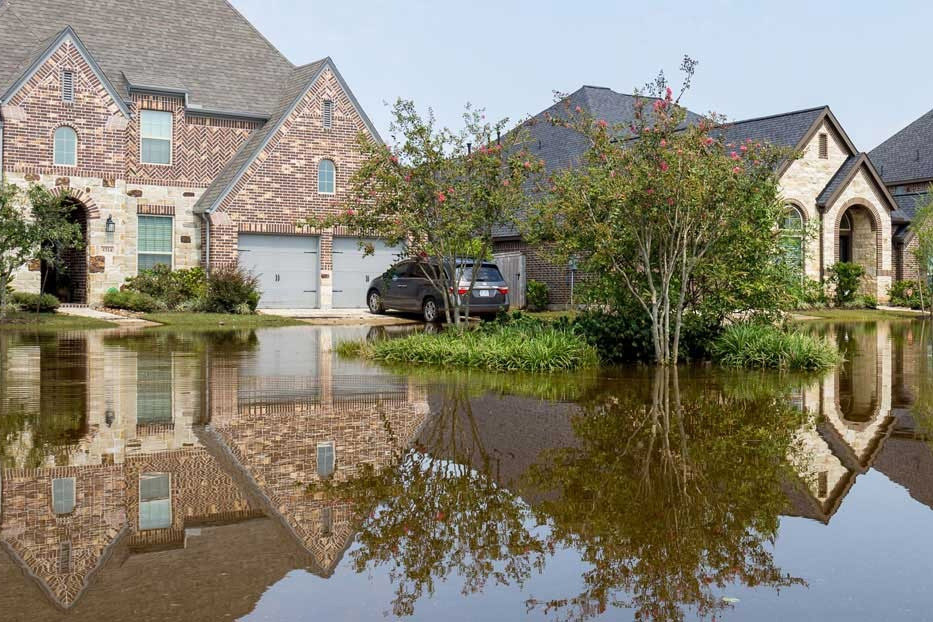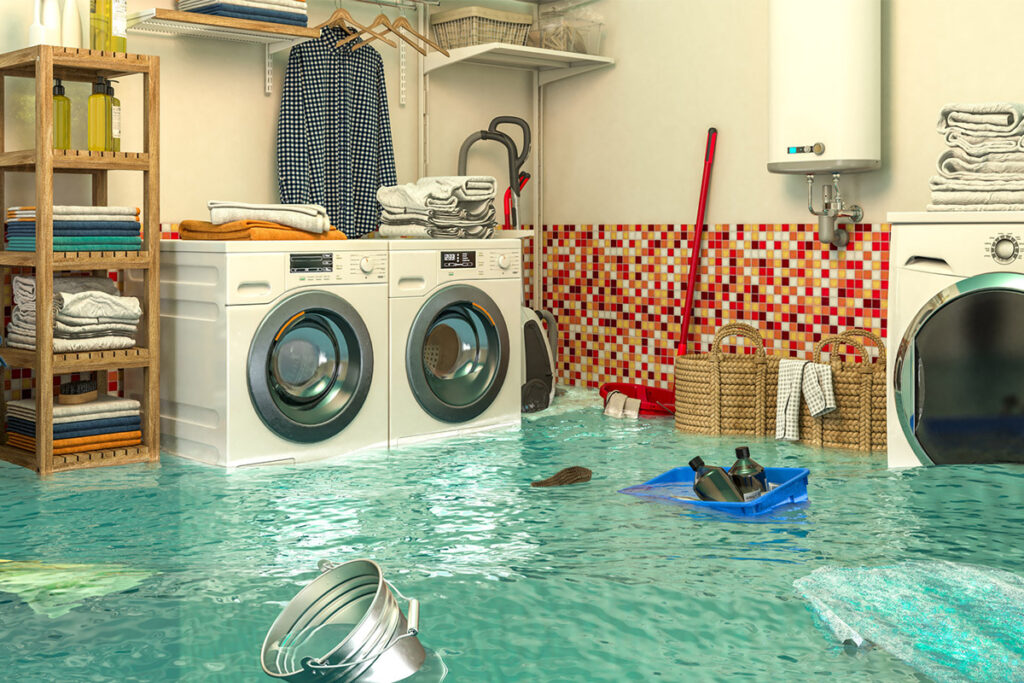When you take out a mortgage to purchase a home, you are required by your lender to carry homeowners insurance for the duration of your loan. These policies cover damage and destruction to your home or personal property caused by unexpected events like fire, windstorms, or theft, and will typically cover repair or replacement costs as well as loss of use.
10 Best Homeowners Insurance Companies in the U.S.
- Farmers Insurance
- Liberty Mutual
- American Family
- Progressive
- Amica
- Lemonade
- Allstate
- State Farm
- Erie Insurance
- USAA
There are many different policies to choose from, even from the same provider. You must weigh your personal risks, the requirements from your lender, and how much you’re able to pay each month when choosing a plan. Additionally, where you live will also determine what kind of coverage you need and in turn, what insurance policy you choose.
Here's the revised comparison table based on the new criteria:
| Insurance Company | BBB Rating | # of States | Online Quote | Offers Discounts | Best Suited for |
|---|---|---|---|---|---|
| Farmers Insurance | A | 40 | ✔️ | ✔️ | Homeowners looking for tiered policy options and eco-friendly discounts |
| Liberty Mutual | A+ | 50 + DC | ✔️ | ✔️ | Cost-conscious homeowners seeking a range of additional coverages |
| American Family | A | 19 | ❌ | ✔️ | Homeowners in the West and Midwest preferring personalized agent interactions |
| Progressive | A+ | 48 | ✔️ | ✔️ | Homeowners who want to compare rates from multiple carriers |
| Amica | A+ | 48 | ✔️ | ✔️ | Homeowners valuing customer service and dividend policies |
| Lemonade | B- | 23 + DC | ✔️ | ✔️ | Digitally savvy homeowners prioritizing fast claims processing |
| Allstate | A+ | 49 | ✔️ | ✔️ | Homeowners interested in unique add-ons and home-sharing protection |
| State Farm | A | 48 | ✔️ | ✔️ | Homeowners seeking extensive local agent networks and security partnerships |
| Erie Insurance | A+ | 12 + DC | ❌ | ✔️ | Homeowners in the East Coast and Midwest preferring in-person agent services |
| USAA | A+ | 50 + DC | ✔️ | ✔️ | Military families looking for tailored services and comprehensive coverage |
Farmers Insurance

Company Overview
Farmers Insurance is based out of Los Angeles, California, and has been in the insurance business for nearly 100 years. In addition to providing home insurance to over 10 million households across the country, the company also provides auto insurance, life, and financial services. However, there are 10 states they don’t offer policies: Alaska, Delaware, D.C., Hawaii, Maine, Rhode Island, New Hampshire, North Carolina, Vermont, and West Virginia.
Pros
- Multiple discounts for homeowners
- Customizable policies
- Coverage for multiple types of dwellings
- Easy-to-use digital claims process
- BBB accredited with A rating
Cons
- No homeowners insurance coverage for South Carolina
- Can be pricey compared to some competitors
- Some information is not available on the website
Why We Chose Farmers Insurance
Farmers separates its home policies into three tiers: standard, enhanced, and premium which can simplify the buying process for consumers. The standard policy includes dwelling coverage, loss-of-use coverage, personal property, and liability protection.
The company offers all customers multi-policy discounts, claim-free discounts, claim forgiveness, good payer discounts, and a declining deductible which reduces your deductible by $50 each year you hold your policy.
Farmers Smart Plan Home
Farmers Insurance provides a Smart Plan Home program with three levels of home insurance: Standard, Enhanced, and Premier. The Standard Plan is budget-friendly with customizable coverages. The Enhanced Plan offers a balance of affordability and benefits, including no-depreciation costs for roof and personal item replacements. The Premier Plan is the most comprehensive, with high coverage limits and full roof replacement costs.
| Plan Name | Description |
|---|---|
| Standard Plan | The most affordable option with customizable coverages to fit budgets and lower coverage limits to keep costs down. |
| Enhanced Plan | A balanced option offering a mix of affordability and benefits, including no-depreciation cost replacements for roofs and personal belongings. |
| Premier Plan | The highest tier with higher premiums, providing comprehensive coverage with high limits for personal property and liability, and full coverage for roof replacement costs. |
Policyholders may qualify for discounts and deductible reductions for claim-free periods. Beyond basic liability, dwelling, and personal property coverages, Farmers offers additional protections like Emergency Mortgage Assistance, Enhanced Roof Coverage, and Extended and Guaranteed Replacement Costs. For those with unique needs, there’s Cyber and Identity Shield, Item-Specific Coverage, and Building Ordinance and Law Coverage. Water Damage Coverage is also available for specific scenarios.
Pricing
Costs vary by location and coverage choice. The National Association of Insurance Commissioners (NAIC) reports an average annual cost for homeowners insurance on a $150,000 to $174,999 home at about $990. State averages for a $300,000 home range from $959 in Pennsylvania to $3,559 in Texas. Costs can be managed by adjusting coverage limits and choosing different coverage options. Farmers representatives can assist in tailoring a policy to fit individual needs and identify potential discounts.
Farmers may be a good choice for an eco-conscious homeowner. Those who would like to make energy-efficient upgrades to their homes can make use of the company’s Eco-Rebuild option which gives policyholders up to $25,000 when they use environmentally-friendly appliances and building materials.
Read the full Farmers Home Insurance review >>
Liberty Mutual

Company Overview
Liberty Mutual offers home insurance to customers in all 50 states and has been a trusted name in the industry since 1912. The company is based out of Boston, Massachusetts, and has over 900 offices across the U.S. as well as offices in 29 other countries. It is currently the fourth-largest insurer in the country.
Pros
- Several discounts available to lower premiums
- Mobile app for convenient account access
- BBB-accredited since 1931 with A+ rating
- Simple and fast online claims
- Available in all states, including Washington D.C.
Cons
- Not a lot of coverage information available on the website
- Limited coverage options compared to some companies
- May deny coverage if you own certain dog breeds
Why We Chose Liberty Mutual
On average, Liberty Mutual has very affordable options for homeowners and may be a good choice for those who are looking for a cheaper policy from a well-known establishment.
The standard policy includes dwelling coverage and other structures (like sheds or detached garages), personal property, personal liability and medical coverage for you and others (sometimes called ‘coverage F’), and loss of use. You can add on additional coverage like blanket jewelry, flood, earthquake, hurricane, inflation protection, and water damage.
Types of Coverage Available
Core Coverage
Under Liberty Mutual's homeowner's insurance, the Home Hazard Insurance serves as the foundation, safeguarding your dwelling against damage from incidents like vandalism or fire. This coverage is not only crucial for your peace of mind but often a requirement from mortgage lenders. It includes the main structure of your home and allows for an increase in the replacement cost to accommodate for more comprehensive coverage.
Natural Disaster Coverage
The insurance policy typically integrates Hurricane Coverage, which handles damage to both the property and personal items resulting from hurricanes. In line with this, Wind and Hail Coverage provides a safety net against the particular damages caused by these weather conditions, ensuring that both the structure of your home and the contents within are covered. These coverages may involve separate deductibles and are worth discussing with your insurance representative to understand your specific protections.
Additional Living Expenses Coverage
Liberty Mutual policies include Additional Living Expenses Coverage as a standard feature. This aspect of your coverage is there to support you financially if your home becomes uninhabitable due to a covered loss, covering the costs associated with temporary housing and living expenses during the repair or rebuilding process.
Optional Coverages
Liberty Mutual offers a selection of Optional Coverages for personalized policy enhancement:
- Inflation Protection: This coverage adjusts for inflation, ensuring your insurance keeps pace with economic changes, and offers a discount to offset the additional costs.
- Insurance Coverage for Valuables: Tailors protection for items like jewelry and electronics, ensuring they're fully covered.
- Water Backup Coverage: Provides security against water damage from plumbing issues.
- Flood Insurance: Available for all, but essential in flood-prone areas, this coverage is through the National Flood Insurance Program.
- Umbrella Insurance: Offers an added layer of liability protection, extendable up to $3 million.
Liberty Mutual ensures that all property types, from traditional homes to mobile homes and condos, have access to comprehensive coverage options, allowing every homeowner the opportunity to secure their property adequately.
Discounts
Liberty Mutual also offers military discounts, claims-free switch discounts (if you’re switching to Liberty Mutual from another carrier and have been claim-free for five years), multi-policy discounts, early shopper discounts (if you obtain an insurance quote before your previous policy expires), and discounts for installing protective devices like security systems.
You can take advantage of unique offers like a new roof discount (essentially if you add or retrofit a new roof you may be eligible for a lower homeowners insurance rate), and an insured-to-value discount for those who insure 100% of the replacement cost of their home.
Read the full review of Liberty Mutual Home Insurance >>
American Family

Company Overview
American Family started in Madison, Wisconsin as a car insurance provider in 1927. Today, the company continues to offer auto insurance but also has comprehensive home insurance coverage, renters insurance, and landlord policies.
Pros
- BBB rating: A
- Large variety of insurance coverage available
- Long history in the industry
- Simple quoting process that takes just a few minutes
- My AmFam mobile app makes account management simple
Cons
- Available in limited states
- Website can be challenging to navigate
- Some homes require the help of an agent for a quote
Why We Chose American Family Insurance
American Family maintains a high overall rating for customer satisfaction, but they only offer plans in 19 states primarily in the West and Midwest, with no coverage options for those living on the east coast. Additionally, all purchases must be made through an agent as their online options for receiving quotes and buying policies is limited.
Types of Coverage
Basic Home Insurance Coverage
American Family's foundational home insurance policy ensures your residence is well-protected. Standard coverage protects your house's structure, including significant components such as the roof and walls, against damage from events like storms.
Coverage extends to detached structures on your property too, like your garage or garden shed. The policy provides for the replacement or repair of personal items ranging from apparel to tech gadgets in case of loss, and if a disaster makes your house unlivable, it supports additional living expenses. Protection against financial losses due to injuries on your premises is also included.
Expanded Coverage Options
American Family offers additional coverage options for a more customized insurance policy. You can secure your home against mechanical and electrical issues with equipment breakdown coverage, and guard against the costs of repairing utility lines with service line coverage. For those in flood-prone areas, flash flood coverage is available, and hidden water damage coverage is an option for unforeseen incidents.
Coverage for home renovations can protect ongoing improvements, while special endorsements are available for home businesses or vacation properties. Valuable personal items can be specifically insured, and services for identity theft protection and credit monitoring are also available to bolster your home's financial defense.
Pricing
On average, homeowners in the U.S. typically pay about $1,200 per year for home insurance, but the actual cost can differ greatly. For example, in Honolulu, the rates are among the lowest at approximately $490 yearly, whereas in Islamorada Village of Islands, Florida, rates are much higher – around $6,295 annually. The size of your home also affects your insurance costs, with larger homes generally requiring more coverage due to higher rebuilding costs. Choosing extra protections, like equipment breakdown or flood insurance, can also increase your annual insurance expenses.
Discounts
The American Family home insurance company offers standard discounts for multi-policy holders, new and renovated homes, and multi-generational customers, as well as many add-ons like water damage, appliance breakdown coverage (much like a home warranty), credit and identity theft, and a diminishing deductible. The average American Family customer tends to have a higher insurance premium than others, but they are generally well satisfied with the coverage and the service they receive.
Read the full American Family Insurance review >>
Progressive

Company Overview
Progressive Insurance has been in the business since the 1930s and though they’re better known for their auto insurance, they do act as a broker to match customers with homeowners insurance through their partners.
The company’s home insurance business is run through Progressive Home Advantage, which matches consumers with different carriers, though they do underwrite some of them through their own agency, American Strategic Insurance unit.
Pros
- Available in 48 states
- Offers several types of customizable home policies
- Negotiates with a provider network to help you get the best coverage and rates
- Simple quoting process that takes just a few minutes
- A+ BBB rating with quick and helpful resolutions to customer complaints
Cons
- Coverages vary by actual insurer
- Mobile app only works for Progressive auto insurance companies
- Not available in Alaska or Hawaii
This business model is unlike other insurance companies that generally underwrite their own policies, and terms will vary since most policies will be with a third-party carrier. Even so, many customers find very affordable plans through Progressive since they’re able to compare quotes from several carriers through the company’s online HomeQuote tool.
Why We Chose Progressive Insurance
Progressive sets itself apart by pairing customers with third-party insurance providers, which can lead to tailored and potentially favorable insurance deals. This method allows you to select from a variety of insurers that Progressive deems a good match for your profile. Although this could mean variable coverage details depending on the insurer, it offers the opportunity to compare and choose the best fit for your needs.
Types of Coverage
Progressive, through its network of partners, offers a comprehensive range of homeowners insurance coverages. This includes the essentials like dwelling coverage, which protects the structure of your home, and attached features like garages. Personal property insurance is there to safeguard your belongings – from your wardrobe to electronics – in the event of a covered peril. Furthermore, personal liability coverage is standard, providing a safety net if someone is injured on your property.
Coverage Details
With Progressive, your policy details the specific perils covered, such as theft, fire, or natural disasters. Understanding these is crucial since coverage is contingent upon these specific events. For instance, if a covered peril damages your roof, your policy helps with the repair costs.
Dwelling
Dwelling coverage is fundamental, responding when a covered peril damages your home. This extends to other parts of your residence like an attached porch. The coverage amount is based on several factors, including your home's size and local rebuilding costs, and can often be adjusted.
Personal Liability
Personal liability insurance is recommended for homeowner protection, covering you if someone is injured on your property and seeks compensation. Medical payments coverage works alongside personal liability, covering medical costs from injuries that occur on your property.
Loss of Use
Loss of Use coverage supports you with living expenses if you're temporarily displaced from your home due to covered damages. For structures not attached to your home, such as a shed or detached garage, other structures coverage applies, usually at 10% of your dwelling coverage.
Optional Coverage
Progressive also offers optional coverages for additional security. Flood insurance is necessary for homes in flood-prone areas, while earthquake insurance is recommended in seismic zones. Personal injury coverage can protect against legal issues such as slander, and water backup coverage is available for incidents like sump pump failures.
Discounts
Prospective customers may be eligible for a discount if they already have an auto insurance policy with Progressive, though these discounts are typically lower than competitors.
Keep in mind that if you get a policy with a partnering homeowners insurance company, you’ll have to file and manage all your claims through them, while servicing all your auto claims through Progressive. However, customers who want to compare multiple home insurance rates in one place to find the best deal may prefer Progressive.
Read the full review for Progressive Home Insurance >>
Amica

Company Overview
Amica is one of the oldest insurers on our list. The home insurance company started in 1907 in Rhode Island as a car insurance company and began expanding in 1956 to include everything from home, condo, and renters insurance to wedding and event coverage.
Pros
- A+ BBB rating (accredited since 1957)
- Website transparency with coverage options
- Customizable plans
- Several homeowner’s insurance policy discounts
Cons
- Online quoting process can be relatively lengthy
- Not available in Alaska and Hawaii
Why We Chose Amica
Amica frequently earns high rankings for customer service and overall customer satisfaction. The company has very competitive premiums, though factors like your location and the age of your home will affect your insurance rate.
Amica's standard home insurance policies include replacement coverage for your dwelling and other structures, loss of use, personal property replacement, and personal liability insurance.
Types of Coverage
Amica offers a range of home insurance policies to accommodate the unique aspects of every home. Recognizing that each home carries its own set of risks and values, Amica ensures homeowners can secure a policy that's as individual as their property, complete with customizable options and dependable support.
These coverage plans are available across the U.S. except for Hawaii and Alaska, but there are only 44 offices across the country. Most customers won’t be able to work in person with a traditional insurance agent. Instead, they may be able to obtain a home insurance quote online or by calling the customer service number.
Standard Choice Home Coverage
Amica's Standard Choice Home Coverage is a comprehensive policy that secures your dwelling, including structures like sheds and garages, against common perils such as fires and storms. It safeguards your personal property, like furniture and electronics, and covers living expenses if your home is temporarily uninhabitable. Beyond the essentials, you can enhance this policy with add-ons like extra dwelling replacement coverage, personal property replacement, water backup protection, and specialized computer coverage to suit your lifestyle.
Platinum Choice Home Coverage
For superior home protection, Amica's Platinum Choice Home Coverage includes all the benefits of the Standard Choice plan with additional perks. This premium policy not only covers your home's structure and personal belongings but also offers extended coverage for high-value items such as jewelry and increased liability protection. It's an all-encompassing package designed for those who seek the highest level of coverage for peace of mind
Optional Coverage
Amica also has several add-ons and unique offerings such as a Home Repair Assistance Program that matches customers with local and reliable contractors. Some customers may also be able to enroll in a dividend program where you may pay more upfront for your premium, but you get a portion of it returned to you if it’s unused and this can range from 5% to 20%. You can also add on identity fraud coverage, earthquake, and flood insurance.
Read the full review of Amica Home Insurance >>
Lemonade

Company Overview
Although Lemonade has only been in business since 2015, the company frequently finds itself listed as one of the best homeowners insurance companies in the country. They are an entirely digital company and offer homeowner, renters, life, auto, and pet insurance to customers in both the U.S. and Europe. However, they currently only offer plans to 23 states and Washington D.C.
Pros
- Easy digital signup process
- Competitive pricing
- High coverage limits
- Very fast claims process
Cons
- Only available in 23 states
- Can be challenging to talk to a person when needed
Why We Chose Lemonade
Lemonade is unique among insurance carriers in that they’re a certified B Corp and a public benefit corporation, meaning any premium payments that were not used to pay claims are then donated to nonprofits that the customers choose.
All business is conducted online or through the mobile app, and you can obtain a homeowners insurance quote and file and manage claims remarkably fast due to the company's use of artificial intelligence. The company says that claims can be filed and paid within a few minutes thanks to its use of AI. Lemonade is ideal for the consumer who’s comfortable conducting all their business digitally.
Types of Coverage
Lemonade's home policies provide average coverage for dwelling units and other structures, personal property reimbursement, and personal liability, but homeowners can also add Extra Coverage to provide protection for valuable items like jewelry, bicycles, and fine art. However, flood insurance is not available to any customers, and only customers in California can add earthquake protection.
Dwelling Coverage
Lemonade provides dwelling coverage, which is essential for the repair or rebuilding of your home’s structure if damaged by a covered event, such as severe weather.
Personal Property Coverage
With Lemonade, personal property coverage means you’re reimbursed for the loss of personal items due to insured damages.
Personal Liability Coverage
Lemonade’s personal liability coverage protects you financially if you are held liable for another person’s injury or damage to their property.
Loss of Use Coverage
If a covered peril displaces you from your home, loss of use coverage supports the cost of temporary housing and daily expenses.
Other Structures Coverage
This coverage applies to structures on your property separate from your home, like a detached garage or fence.
Medical Payments Coverage
When someone is injured on your property, medical payments coverage helps manage the costs of their medical treatment.
Pricing and Discounts
The cost for homeowners insurance can average around $1,600 yearly, but Lemonade offers personalized quotes to give you accurate pricing for your home. Various factors influence your rate with Lemonade: property values, location specifics, and the level of coverage chosen are key determinants.
For example, a half-million-dollar home's insurance will be more than a home valued at $100,000 in the same region. Colorado homeowners might see higher rates compared to those in New York or Illinois due to regional premium differences. Deductibles and additional coverages also play a role in final premium calculations.
Read the full Lemonade Insurance review >>
Allstate

Company Overview
Allstate has been in business since 1931 and is headquartered in Northbrook, Illinois. They are currently one of the largest insurance providers in the country with over 16 million customers. They provide policies for customers in all 50 states plus Washington D.C. and they also operate several smaller insurance companies under the Allstate umbrella.
Pros
- Discounts for bundling, autopay, and more
- Coverage in most states
- Extra protection available for renting out home
- Several add-ons for customizable coverage
Cons
- Homeowners insurance not available in California
- Mixed customer reviews
- Relatively higher premiums compared to other companies
Why We Chose Allstate
Allstate offers standard homeowner insurance but stands out from its competitors by also offering home-sharing insurance for those who rent their properties through sites like VRBO and Airbnb. The company participates in a number of philanthropic ventures such as The Allstate Foundation, founded in 1952 which works with youth and community partners as well as non-profits.
Allstate's average premiums are slightly higher than the national average, but because the company offers so many discounts, many customers find they’re able to find affordable plans that meet their needs.
Types of Coverage
Allstate home insurance provides a comprehensive range of coverages to secure your property and personal belongings. From the core protection of your home's structure to the liability in case of accidents, Allstate covers various facets of homeowner risks.
Allstate home insurance not only covers common threats like fires and theft but also offers several optional coverages tailored to individual needs.
Standard Coverage
Dwelling Coverage
This is the fundamental component of home insurance, offering protection for your home's structure against damages from perils like fire, theft, and windstorms. It includes both the main building and its integral parts, such as garages. For separate structures, like sheds, you may need additional coverage.
Liability Coverage
This safeguards you against costs from damages or injuries you're responsible for. It typically starts with basic limits but can be increased for enhanced protection, affecting your premiums.
Personal Property
Separate from dwelling coverage, this helps replace personal items like clothes and electronics lost to covered perils. The coverage limit is flexible, with options for actual cash value or full replacement cost, the latter providing a higher level of coverage at a greater cost.
Guest Medical
Should a guest incur injuries while on your property, this coverage helps pay for their medical expenses. While standard limits are modest, they can be increased upon request.
Optional Coverages
Allstate offers optional coverages for homeowners seeking enhanced protection. Options include Yard and Garden coverage for landscaping, Musical Instruments coverage for valuable instruments, and Sports Equipment coverage for costly athletic gear.
High-value personal items like antiques can be fully covered under Scheduled Personal Property. These add-ons ensure homeowners can customize their policies to their lifestyle and assets. And to protect yourself from dangers in a digital world, Allstate offers Identity Theft insurance and Electronic Data Recovery coverage in case you lose sensitive data.
Pricing
The price of your policy can be affected by:
- Your home's age and condition, particularly the roof
- Location and features of your home, including pools or fences
- Claim history, with fewer claims possibly leading to lower premiums
Typically, standard liability coverage amounts to about $100,000, but you may consider increasing this for more extensive protection, particularly if you have considerable assets or potential hazards like a swimming pool. Adding umbrella insurance can provide even more comprehensive liability coverage.
Read the full Allstate Homeowners Insurance review >>
State Farm

Company Overview
State Farm, located in Bloomington, Illinois, is the largest property insurer in the nation with a strong record of financial strength. The company has been in business for 100 years. State Farm provides policies for customers across the country with the only exceptions being Rhode Island and Massachusetts, and they have over 20,000 local agents to serve their customers.
Pros
- Offers wide range of discounts
- Extensive network of local agents across the U.S.
- Allows all dog breeds
- Partners with ADT for affordable home security
Cons
- Homeowners insurance not available in California
- Website does not provide much policy information
- Limited number of discounts for homeowners
State Farm's broad coverage, extensive partnerships, and flexible discounts make them a very good choice for homeowners looking to insure their property.
Why We Chose State Farm
State Farm stands out as the largest home insurer in the United States. The company’s reputation is built on extensive experience, a wide array of coverage options, and a commitment to customer service. The offerings go beyond typical insurance, including unique partnerships like those with ADT, one of the best home security companies, and Ting, which specializes in electrical fire prevention. These services demonstrate State Farm’s proactive approach to safeguarding homes.
Types of Coverage
State Farm's standard homeowners insurance coverage provides robust liability protection in case someone is injured at your property or if there is property damage. There are policy limits with maximum payout amounts for various categories, such as money, business property, and specific high-value items like jewelry and electronics.
Optional Coverage
State Farm offers additional options to enhance your coverage. Through third-party partners, State Farm offers protective measures against fires, theft, and other potential threats. For example, ADT home security systems are available in select states, and in regions prone to wildfires, State Farm collaborates with Wildfire Defense Systems to protect homes at risk.
Options include coverage for fraud and identity theft, sewer back-up, flood and earthquake coverage, and umbrella coverage. State Farm may be ideal for those who already have an auto policy with them since they can save up to 20% when bundling home insurance. It may also be a good choice for those with a unique dwelling such as a farm or ranch.
Pricing
In the United States, the average cost of homeowners insurance is about $1,800 annually. This figure, however, can vary based on the state and other factors.
The cost of homeowners insurance is primarily influenced by the location and size of the home, though there can be many other contributing factors. Areas prone to severe weather, floods, or earthquakes often have higher premiums. The size and value of the home play a critical role, as larger homes typically incur greater costs to repair or replace.
The presence of safety features such as burglar alarms or fire suppression systems can actually lower your premiums, while homes with high-risk features like swimming pools may see increased rates. Personal factors, like credit history and previous claims, can also impact insurance costs.
Discounts
State Farm provides a variety of discounts that can make their policies more affordable. By bundling different insurance lines, customers can enjoy significant savings. Additionally, discounts are available for homes with security systems and impact-resistant roofing materials. Selecting a higher deductible can also reduce monthly premiums, offering a trade-off between immediate savings and potential future costs.
In addition to standard home insurance plans, State Farm also offers diverse coverage options like renters and condo insurance, and policies for properties like farms, ranches, including landlord insurance for investment properties.
Read the full State Farm Home Insurance review >>
Erie Insurance

Company Overview
Erie Insurance has been in the business for nearly 100 years and is headquartered in Pennsylvania. They currently only offer policies in 12 states plus Washington D.C., mainly on the East Coast and Midwest. Within this area, they have over 13,000 agents making Erie Insurance ideal for customers who like interacting with an agent in person or by phone rather than online.
One downside to Erie insurance is that you can't get an online quote – you must speak with an agent to get a quote. However, Erie offers low average premiums and high customer service reviews for their claims process.
Pros
- Replacement cost available as standard for most policies
- Extensive network of more than 13,000 insurance agents
- A+ BBB rating
- Average 20% multi-policy discount
Cons
- No online quoting system
- Available in a limited number of states
One major selling point of Erie’s home insurance plans is that most of them come with Guaranteed Replacement Cost coverage. This is significant since many competitors won’t reimburse costs that are higher than the coverage limit listed on the policy. This coverage ensures you’re able to rebuild completely after a qualifying claim, drastically limiting your out-of-pocket expenses.
Why We Chose Erie Insurance
Erie Insurance earns its recognition as one of the best home insurance companies for a variety of reasons, making it a standout choice in a competitive market. Erie Insurance is committed to offering comprehensive coverage options. This ensures that homeowners can find a plan tailored to their specific needs, whether they seek basic protection or more extensive coverage.
The company manages to balance affordable rates with high-quality coverage, meeting the financial needs of a broad customer base. Erie’s array of discounts, including those for bundling policies and insuring new homes, further enhances its appeal to cost-conscious consumers.
Erie’s customer-focused approach is also a significant aspect of its reputation. The company is recognized for going beyond standard offerings, addressing common homeowner concerns with thoughtful features and services. This dedication to customer satisfaction and understanding of homeowner needs cements Erie Insurance as a top choice for those seeking dependable and customizable home insurance solutions.
Types of Coverage
ErieSecure Home Bundles provide homeowners with additional coverage options to enhance their standard insurance policies. Erie offers three distinct plans, each with a unique level of protection and pricing structure. The cost of these plans varies based on factors such as the size and location of the home, among others.
Advantage Bundle
The Advantage bundle serves as the base option and is the most affordable of the three. This plan focuses on providing extra protection against theft and lost valuables, and it includes identity protection to assist homeowners in recovering from identity fraud incidents.
Plus Bundle
The Plus Bundle offers everything included in the Advantage plan, with some significant additions. It provides up to $10,000 of coverage for underground sewer lines and increases the coverage limits for items such as watercraft and home siding. Homeowners have the option to add sewer or drain backup coverage in this plan, enhancing their protection further.
Select Bundle
The Select Bundle stands out as the most comprehensive bundle. It encompasses all the features of the Advantage and Plus plans and introduces additional elements like equipment breakdown coverage, which is particularly beneficial for homeowners with sewer or drain backup coverage. Notably, the Select plan extends its coverage to include extra liability for watercraft, even covering legal defense costs in certain disputes.
Pricing
The average annual cost of home insurance in the United States ranges from $1,400 to $1,800. This rate varies depending on factors such as the home's size, construction materials, and geographic location. For example, states like Oklahoma and Kansas often see higher rates compared to Utah and Vermont.
Erie Insurance's rates are competitive, generally falling between $1,400 and $1,500 per year, which aligns with the national average. However, in many states where Erie operates, the typical home insurance costs are slightly lower, positioning Erie's rates on the higher end of the spectrum.
Erie enhances affordability through various discounts, such as those for insuring new homes and bundling home and auto insurance, making their policies more accessible and cost-effective for a wide range of customers.
Read the full review of Erie Home Insurance >>
USAA

Company Overview
USAA insurance is reserved only for those in the armed forces, veterans, and their families, and has been in the insurance business for 100 years. The company is based in San Antonio, Texas but has satellite offices in Europe to help those stationed overseas.
Pros
- Available in all 50 states and Washington, D.C.
- No deductibles for military uniform coverage
- Replacement cost comes standard
- Numerous discounts available
Cons
- Not available to people outside of the military community
USAA receives excellent reviews for its customer service but it has very few physical locations. However, because service members are constantly relocating, the lack of brick-and-mortar locations doesn’t affect many customers since they’re used to doing business digitally.
Why We Chose USAA
Military servicemembers and veterans choose USAA for home insurance coverage because it caters specifically to the unique needs of the military community. USAA's policies are tailored to accommodate the challenges of military life, such as frequent relocations and deployments. The company is renowned for its outstanding customer service, a critical feature for servicemembers often away from home.
Who Is Eligible for USAA Home Insurance?
USAA’s exclusive services are only available to those connected with the military community. Eligibility extends to current military members, veterans, pre-commissioned officers, and their spouses and children.
Joining USAA requires proof of military association, and once a member is accepted, their family can also join. Membership is free, but certain products may carry fees.
Types of Coverage
USAA offers robust standard coverage and flexible options for additional coverage.
Standard Coverage
USAA home insurance policies encompass a range of standard coverages. Dwelling coverage protects the home structure and attached entities, including unique inclusions like pools, under its standard plan. Personal property coverage safeguards belongings like furniture and electronics in case of damage from covered events.
Liability insurance covers homeowner responsibilities in case of injuries or damage on their property or elsewhere. Loss of use coverage supports homeowners with expenses when their home is uninhabitable due to covered events.
Additional Coverage Options
- Valuable Personal Property Insurance: This covers high-value items like jewelry, collections, and musical instruments, with some exceptions like depreciation and specific types of damage.
- High Value Home Insurance: Tailored for homes needing coverage of at least $1.5 million, this option comes with higher premiums and additional benefits like ransom or extortion coverage and large loss deductible waivers.
- Umbrella Insurance: Offering up to $5 million in additional liability coverage, it complements standard policies and often requires concurrent car insurance through USAA.
- Flood Insurance: Sourced from the National Flood Insurance Program, this covers traditional and unique flooding scenarios, including hurricanes and ice melt.
- Windstorm and Hurricane Insurance: Aimed at homeowners in storm-prone areas, it protects against hurricanes, tornadoes, and hail, available in select coastal states.
USAA’s comprehensive coverage options, both standard and additional, cater to the diverse needs of homeowners, particularly those with military affiliations, ensuring tailored and extensive protection.
Pricing
The average homeowner usually pays between 1,500 to $2,000 annually. USAA, focused on serving the military community affordably, offers lower rates than the national average, with costs starting from $900 per year. Rates depend on location, home size, and coverage needs.
Discounts
USAA offers several discounts to help members save on premiums:
- Bundle Savings: Up to 10% off for bundling home and auto insurance.
- Connected Home Discount: Rewards for enrolling in a program that monitors home safety using smart devices.
- Protective Device Credit: Up to 5% off for having security and safety devices installed.
- Multi-Product Discount: Savings for having multiple USAA insurance products.
- Loyalty Savings: Up to 5% off for maintaining a policy for at least three years.
- Claims-Free Discount: Up to 15% off for not filing a claim in five years, potentially saving $225 annually on a $1,500 policy.
USAA also offers member perks like shopping discounts on various products and services, travel packages, and entertainment, enhancing the value and affordability of membership. These perks include savings on car rentals, cruises, TV streaming, and health-related services, all available through USAA's member perks page.
Read the full review of USAA Home Insurance >>

Home Insurance Help Guide
How Does Homeowners Insurance Work?
Unfortunately, disasters can happen to your home that are beyond your control. A tree can fall through the roof. A pipe can burst. It could catch on fire and burn to the ground. Things can also happen on your property that could result in you facing financial damages – like if your dog bites someone in your yard. For all these unexpected events and others, there is homeowners insurance.
Just like health insurance and car insurance, homeowners insurance involves paying premiums to obtain coverage. The monthly payment is typically wrapped up into something called a PITI payment: principal, interest, taxes, and insurance. This way, the premium is bundled with your monthly mortgage payment.
When your claim is approved, you will receive a lump sum payment meant to defray the property damage and inconvenience. It’s important to remember that insurance policies have a deductible. This is an amount of money that you have to pay before the insurance company will cover the costs of repair or replacement.
What Are the Different Types of Homeowners Insurance?
The insurance industry offers various types of home insurance policies to ensure that everyone from renters to homeowners can find suitable coverage.
- HO-1 and HO-2: Basic coverage for specifically listed perils. Least comprehensive.
- HO-3 (Special Form Coverage): Popular option, covers home damage from most perils, except for those excluded, but limited coverage for personal property.
- HO-5 (Premier/Comprehensive Form Coverage): More inclusive than HO-3, covering both home and personal property from all perils except those excluded.
- HO-4 (Renters Insurance): Specifically for renters, covering personal property and liability.
- HO-6 (Condominium Insurance): Tailored for condominium owners, covering personal property, interior structures, and liability.
- HO-7 (Mobile Home Insurance): Designed for mobile homes, including coverage similar to HO-3.
- HO-8 (Historic Home Insurance): For historic homes that don't qualify for standard insurance, covering replacement costs and some modernization.
There are different types of homeowners insurance, and they are often labeled HO for short (an abbreviation of homeowner). An HO-3 policy, also called special form coverage, is by the far the most popular. HO-3 covers damage to your home from any type of peril that is not specifically excluded in the contract, and as such it provides very comprehensive coverage. However, regarding your movable property and valuables, it only covers damage from perils that are specifically named.
Another type of homeowners insurance is HO-5, which is also called premier coverage or comprehensive form coverage. This type of policy is more inclusive than HO-3 in that it also covers your movables and valuables from any peril aside from those specifically excluded. HO-5 policies are usually only available for well-maintained homes in low-risk areas.
Note that an HO-3 policy may also be called premier, so it’s important to specifically ask your agent regarding the type of coverage you’re getting and its details without making assumptions.
Lastly, there is HO-1 and HO-2 coverage, which only covers perils that are specifically listed. These are the least comprehensive forms of coverage.
Other policy types include HO-4 for renters, HO-6 for condominiums, HO-7 for mobile homes, and HO-8 for historic homes that wouldn’t qualify for a standard homeowners insurance policy.
What Does Homeowners Insurance Cover?
Standard home insurance covers the following:
• Dwelling
• Other Structures
• Personal Property
• Loss of Use
• Personal Liability
• Medical Payments
Insurance in general is a type of contractual arrangement between a policyholder and their insurer. The policyholder or subscriber (as they’re also called) will make a period payment to the insurance company for coverage.
What this coverage means is that if a specific event occurs, the insurance company will issue the policyholder a lump sum payment to rectify the damage done by that event. Most Americans are familiar with auto insurance and health insurance, for example. And it’s easy to see why these types of insurance can be necessary…everyone needs to visit a doctor at some point, and around 77% of drivers have some sort of car accident at some point.
Dwelling
This aspect of the coverage includes the structure of your home and any attachments like a porch, deck, or garage. Built-in appliances may also be covered, such as a water heater. Typical perils that lead to a claim under this type of coverage include damages from wind, hail, freezing, fire, and lightning.
Dwelling coverage is meant to provide the homeowner with enough money to repair their home. For instance, if a severe thunderstorm uproots a tree and it falls through your deck, the policy will provide enough coverage to repair the deck.
Other Structures
This aspect of the policy covers standalone structures on your property, such as a shed, fence, or detached garage. However, this amount is limited to 10% of your dwelling coverage. So, for example, if an Amazon delivery driver accidentally drove his truck through your fence, that would likely be completely covered. But if you’ve taken a detached garage and turned it into an Instagram-worthy pool cabana lounge, and that same Amazon driver plows through it by accident, that would very likely exceed 10% of your dwelling coverage. If you want to rebuild it the way it was, you’ll likely need to foot the rest of the bill.
Personal Property
Personal property includes anything that isn’t nailed down to your home but belongs to you. These are items like clothes, appliances, furniture, and valuables. Personal property coverage will generally only go up to 50% to 70% of your dwelling coverage, which is typically sufficient to defray the cost of replacing what was damaged or lost.
Personal property is usually covered against specified events like fire, explosions, riots, vandalism, theft, falling objects, power surges, or water damage. For instance, if a pipe burst in your kitchen, destroying the first floor of your home and all of your furniture and appliances, the personal property component of your insurance would cover that. One important thing to note about personal property coverage is that it covers your property anywhere (some exceptions may apply). So, for insurance, if someone steals your bike while you’re at the park, that would be covered even though the theft did not occur at your home.
Loss of Use
Loss of use is that part of the policy which will defray your living expenses if you can not live in your home while it’s being repaired. For this reason, it’s also often called additional living expenses. Examples of additional living expenses include hotel bookings or restaurant meals while your home is uninhabitable.
Personal Liability
This aspect of coverage covers you, your family, and often even your pets. If anything happens in your home that inspires someone else to sue you for damaging them or their property, personal liability coverage will pay them off.
Certain aspects of personal liability are applicable outside your home. For example, if your dog bites someone at your local dog park, that would be covered. However, you cannot be covered for intentional or criminal acts. If you forgot to salt your driveway and a visitor slips and falls, you’ll be covered. But if you intentionally push them and they slip and fall, you would not.
Medical Payments
If you, your family, or your pets cause medical damage to someone else and there is no lawsuit, instead of tapping into your liability coverage, the medical payments aspect of coverage could defray the cost of their medical bills. Let’s say a friend is over and gets injured. The friend is not interested in suing you but there are medical costs associated with treatment. These medical payments might be covered by your homeowners insurance plan.
What Does Homeowners Insurance NOT Cover?

Home insurance policies don't cover everything. Whether a home insurance policy provides insurance coverage for everything not excluded, or only what is listed, certain things will not be covered.
One thing home insurance won’t cover is if you intentionally damage your home. For this reason, using your homeowner’s policy as a means to collect cash and do those renovations you’ve been hoping for is a BAD idea – and one that will most likely be caught.
Aside from this type of insurance fraud, a homeowners insurance policy will not cover flooding, whether that flooding occurs from a natural source like a river, lake, or ocean, or from a drain or sewer backup. One reason that standard homeowners insurance will not cover flooding is that it is considered a gradual and not accidental event.
Perhaps the main reason is that flooding costs insurance companies too much money. That’s why the federal government offers flood insurance through the National Flood Insurance Program. However, the program is offered through the company that provides your policy, so speak to your insurance agent and make sure your home is covered if it is in one of the zones defined as prone to floods.
Home insurance policies will not cover acts of war or government action such as eminent domain (when the government seizes private property for public use). Lastly, home insurance will not cover wear and tear. For that, you might consider getting a home warranty.
If you have specific concerns about certain hazards, you can get additional coverage through something called endorsements. These coverage options will increase your deductible but they will protect you against particularly valuable personal belongings (art, jewelry), or pay to bring your home up to changes in the zoning code.
How Much Does Homeowners Insurance Cost?

The cost of homeowners insurance depends on many factors, including coverage options, home location, and financial factors like your personal credit history.
Most home insurance companies in the U.S. charge an average of ranging from $676 annually to $2,044. That comes out to anywhere between $56 to $170 per month, which is a fairly low number when you think about everything that homeowners insurance covers.
If you are still paying off your home loan, most types of mortgage lenders will require you to have homeowners insurance. This is because as long as the home is not paid off, it’s still collateral for your loan. If you default on the loan, the lender will claim the home in foreclosure. They don’t want a property that is uninsured or that the homeowner has abandoned because of an unexpected destructive event. If you put down less than 20% on a home, your lender may also require mortgage insurance to protect the lender.
If you are renting, renters insurance is more affordable. You can often find policies that will provide you coverage for less than $30 every month. In fact, in most states, policies have a monthly premium that is below $20. You will often be required to conduct a home inventory to list your personal property and its value. While it’s tempting to skip this part, you should not, because unlisted items may not be a covered loss. In many places, if you are renting, this type of renters insurance is not optional coverage, but required by the leasing company, because it also reduces their potential liability.
As a last note, the typical deductible is $1,000, sometimes $2,000 or $500. Alternatively, it might be 1-2% of the home’s insurable value.
How To Choose the Best Homeowners Insurance in 2025
Most of us will have to purchase a homeowners insurance policy if we own a home or a rental property. When you take out a mortgage, it’s likely your realtor or lender will recommend an insurance company for you to use, but you can should reach out to other carriers to obtain quotes. Each insurance provider will be able to offer you a unique policy based on their available programs and your needs, and rates can vary widely from one company to the next. Since there is so much variation, you need to know how to choose the best homeowners insurance company that meets your needs.
- Educate yourself about policy types and carriers
- Decide how much coverage you need
- Obtain quotes from multiple providers
- Choose a policy
When you research home insurance policies, most providers will offer similar coverage for their standard plan. This generally means you’ll receive compensation for your main dwelling unit (your home) and other structures like sheds or garages, some personal property, and personal liability. However, there are other types of insurance that you may need. Carefully compare the carriers you’re considering, and seek out those with positive comments about their customer service.
If you live in California or on the west coast you may consider adding earthquake insurance, while those who live in Florida or Louisiana may choose to purchase flood insurance. Typically, these events aren’t covered by homeowners insurance unless you purchase additional coverage. If possible, get an agent on the phone and ask them all your questions before deciding on a plan.
Where you live will determine how many property insurance options you’ll have, but most people will be able to get quotes from at least four to five carriers. Start with providers you already have a relationship with. Almost all insurance companies offer multi policy discounts, so if you already have auto or life insurance coverage you’ll likely receive a lower quote from your current carrier. However, this does not guarantee that the lowest offer will be the best home insurance for your needs.
The Bottom Line
The cheapest policy likely won’t be the most comprehensive coverage option, so look closely at what’s actually being offered and compare it with your other quotes. Sometimes a quote that’s only $100 more than a competitor could end up giving you exponentially more in coverage. You will also need to review your policy annually to ensure it’s still offering you the coverage you need.






